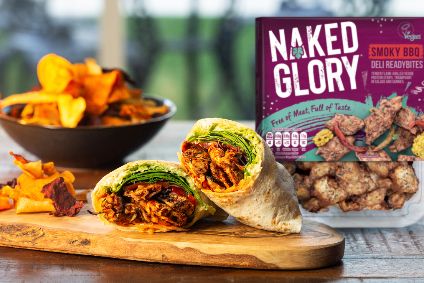In the week before Christmas came news Kerry Group, the Irish packaged foods and ingredients supplier, might be getting ready to say farewell to its consumer-facing division.
Kerry’s Consumer Foods arm, home to brands such as Dairygold butter and Richmond sausages, has long been the smaller part of the company’s business by revenue and margins and its future has often been chewed over by parts of the investment community.
In 2019, Kerry’s Consumer Foods arm accounted for just over 18% of the group’s EUR7.2bn (US$8.75bn) of revenue (back in 2013 that proportion stood at 28%) and 10% of its trading profit of EUR903m. The company’s ingredients business made up the rest of the revenue and booked a trading margin of 15.3%.
Offloading the consumer-facing assets would provide resources to invest in Kerry’s ingredients division, which the company has been looking to grow through M&A. “It’s not core, it’s not growing very quickly and arguably the investor focus is on the core Taste & Nutrition [ingredients] division,” a City analyst tells just-food.
“The argument had always been: ‘They’d never done it before, so why would they do it now?’ It’s a bit of a self-fulfilling argument. Maybe five or ten years ago, the cash that they had generated may have been material and useful and they were synergies but it comes to a point where, actually, it’s so small, because the core section is growing so much quicker, that it is in the best interests of the business to offload it, if possible.”
As you’d expect, public statements from Kerry are brief and to the point, with the company declining to comment. The Cheestrings owner is set to publish its 2020 financial results next month, so could an announcement on the future of the assets come then?

US Tariffs are shifting - will you react or anticipate?
Don’t let policy changes catch you off guard. Stay proactive with real-time data and expert analysis.
By GlobalDataA report in Ireland yesterday suggested Kerry is expected to start a formal sales process by the end of the first quarter. However, a more crucial question than when Kerry could open the books is what level of interest the company’s chilled-food assets could attract – and from where.
With Kerry’s consumer business taking in dairy, processed meats and ready meals, it’s hard to think of a single trade buyer for the division. There’s plenty of cash floating around private-equity circles but the appetite there tends to be on specific categories (we saw another example of one such deal this week).
More likely is for Kerry’s disparate consumer businesses to be sold piecemeal and found homes with companies in those categories. Could Canada’s acquisitive dairy major Saputo, which acquired UK group Dairy Crest in 2019, be eyeing Kerry’s dairy operations? That said, Kerry Co-operative Creameries, the Irish dairy co-op that’s also a Kerry Group shareholder, has been heavily linked to the consumer-dairy business in a broader deal for primary-dairy assets Kerry Group also still has.
CapVest, the private-equity major that does own assets across packaged food, has been touted as a possible suitor for Kerry’s meats portfolio, although through the investor’s protein-centric business Eight Fifty Food Group. The London-based private-equity firm declined to comment on Kerry yesterday when approached by just-food (incidentally about more M&A chatter centring on another its assets, Valeo Foods Group).
Eight Fifty Food Group has been acquisitive of late. Another possible runner might be Pilgrim’s Pride, the US-based meat group that bought UK business Tulip from Danish Crown in 2019. In November, Pilgrim’s, majority-owned by Brazilian meat titan JBS, indicated it saw acquisition activity as a way to create a more balanced portfolio, with branded businesses on the radar.
Kerry has dipped its toe into the emerging plant-based meat area, with its Naked Glory brand and meat-alternative SKUs launched under the Richmond brand. These fledgling products could equally appeal to a meat group hitherto focused on conventional protein or, like Pilgrim’s, meat companies that have also tested the plant-based waters.
Kerry’s ready-meal assets might be a harder sell. Might another Ireland-based business with a presence in chilled ready meals, Greencore, look at boosting that side of its business through M&A?
After years of wondering whether Kerry could look to exit consumer foods, we may not have long to wait.





